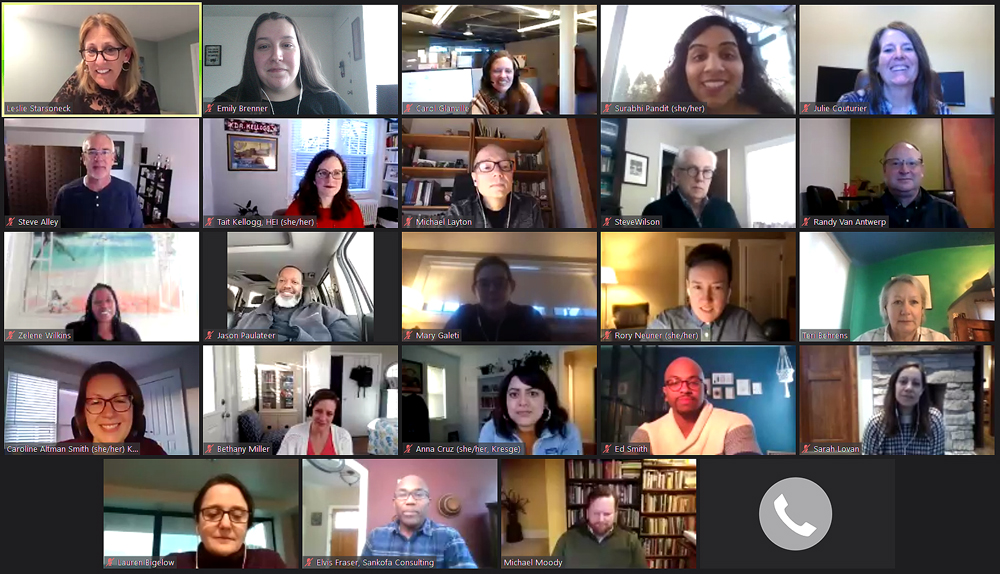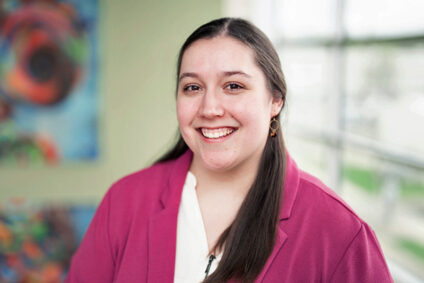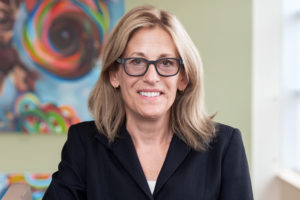Beyond the Checkbox: Describing Identity in The Grantmaking School


In August 2020, we detailed how we redesigned The Grantmaking School’s courses for a virtual format and with a focus on equity. We shared that the pandemic had accelerated our schedule to move courses online and provided an opportunity to reflect on the current and emerging learning needs of grantmakers. It soon became clear that strategies and tools for responding to systemic inequality and calls for racial justice were chief among what grantmakers needed and were asking for.
Though we plan to return in some form or fashion to in-person courses in 2022 and beyond, the move to virtual courses has been a success and will remain one of our leading approaches to learning. We’ve heard from participants how much more accessible online learning is, and that they appreciate the “safe space” created for learning and candid discussion and the engagement built into the course experience.
The number of grantmakers registering for our public courses has greatly increased. Our geographical reach has also expanded to include practitioners joining us from states and organizations that are new to us. We are offering courses more often and have waiting lists for our most popular content.
The increased demand for courses, the accessibility afforded by virtual learning, and the focus on understanding and developing equitable practices, presented an opportunity to respond to the learning needs of grantmakers and our own need to diversify our instructor pool.
We sought to expand our instructor pool according to a variety of measures — age, time in the sector, experience within grantmaking organizations, and alignment of technical skills with the curricula of what we refer to as our core courses: Philanthropy 101, Proposal Analysis, Strategy and Evaluation, Persuasive Writing, and Financial Analysis. Diversifying our instructor pool helps The Grantmaking School better respond to the growing and changing learning needs of the sector. Gathering and analyzing data about our instructors also allows us to better understand the expertise gaps and blind spots we may have.
So, we set to work. Over the course of 2020, we recruited more than a dozen new instructors from across the United States and now boast a dynamic and impressive pool of more than two dozen instructors.

We improved upon an already incredibly talented pool of instructors and while we recruited and invited what we thought was a diverse group, we needed a way to measure and evaluate that diversity. This required reflection on why we sought to “diversify,” what we meant by that goal, and what it was that was important to measure. Rather than using checkboxes or assuming what characteristics were important about our instructors, we decided to ask them. We asked our instructors to share what parts of their identity they felt were relevant to both philanthropy and teaching at The Grantmaking School. What we got back was instructive and much more meaningful than just demographics.
The richest feedback came from a request to share how background and experience inform our instructors’ approach to philanthropy and to teaching.
The Importance of Education
Many respondents described a passion for education and the influence it had early in their own lives as an important part of their identity. Some shared that they grew up in “low income” neighborhoods, were first-generation college students, and had a strong belief that education was a way “out” or up. Said one instructor, “Education was a pathway to upward mobility for me, like so many others.”
A Global Perspective
Living, working, and traveling overseas was another commonly reported element of identity. In one case, and based in part on extensive travel, an instructor said it provided “a deep understanding of the history of global systemic racism, colonization, and patriarchal societies and their adverse impact on vulnerable populations…” And another: “I watched [my parents and grandparents] give in so many traditional and nontraditional ways growing up, that philanthropy has been in my blood. It’s not just a profession [for me] but a way of life.”
These learnings allow us to know people beyond or regardless of their membership in a certain group. Having this information about our instructors also allows us to more effectively pair them to co-teach — we often utilize one staff member from the Johnson Center with an external instructor — and to meet specific needs that a grantmaking organization may require or be looking for, such as a specific foundation type that an instructor has experience with or work in grantmaking in a particular mission area, like education.
Our instructors have significant and varied tenures in the sector.
Instructors have important experiences outside of foundation work: 95% have worked for a nonprofit, and have experience in a variety of organizational roles.
The background experience of our instructors includes a range of experience in education, corporate/private, and public/government.
The only demographic information we collected through checkboxes was to categorize age by decade. The ages of our instructors are widely distributed from 25 to 65+, with 33% of our instructors falling within the 36–45 age range.
A few instructors shared their race/ethnicity or sexual identity but most did not. For those who did share, it was characterized as a key component of their identity and communicated with pride.
We plan on continuing to collect data in this way in the future. Our main takeaway has been the importance of giving instructors the ability to self-identify what was important for us to know or understand about who they are and what they bring to their role. So often people only see the parts of identities that are outward facing, creating a limited view.
We also think demographics are important and have a place in our work. That place is to ensure representation among and across groups, not to understand or circumscribe identity.
“[T]he influence of lived experience on the classroom — the dynamic among instructors and learners, the examples shared, critical thinking questions posed, and more — is priceless.”
We are not finished building our instructor pool and continue to look for talent with an eye to filling our gaps; realistically, the pool itself will never be “finished.” The needs of the sector will continue to evolve and that means we need to be prepared to evolve our partnerships, skillsets, and course offerings along with it. That’s one reason why an open-ended approach like this is an important one: as focus areas and priorities ebb and flow, we always need to ensure we are hearing and learning from people whose lived experience comes in a wide variety of shapes and trajectories. Their voices enrich and challenge our work in ways that can lead to better, more sustainable outcomes. Further, the influence of lived experience on the classroom — the dynamic among instructors and learners, the examples shared, critical thinking questions posed, and more — is priceless.
We will continue to revise the content that is included in The Grantmaking School’s courses for the same reasons. As we continue on our own equity journey, our courses and content will continue to grow and change right along with us.

